Few films have experienced as profound a shift in critical and popular opinion as Rope — and it’s a well-deserved shift. It’s not just our increased interest in the way films are made. That was pretty rare in 1948, but it’s hardly all-pervasive now. (How often do you hear people only express interest in the story, or insist on comparing films to literature, plays, or even paintings — with little thought for them in film terms? Even critics sometimes fall back on this.) I suspect its increased acceptance stems in part from the fact that we are no longer as shocked by a story as dark as this, nor are we so resistant to the against-type casting of James Stewart. Certainly the role of a snobbish intellectual professor with a penchant for Nietzsche is about as far from Stewart’s trademark “everyman” as possible, but seen from today’s perspective his Rupert Cadell is one of his most compelling performances. It is without question his most unusual, and the long takes that required him to play the role for an inordinately extended time (for a movie actor) may play a part in that. It may be an illusion, but it seems that Stewart’s intensity increases as the scenes get nearer the end of a take, and it’s hard not to wonder if the fear of having to start all over again was a factor.
The story — vaguely based on the Leopold and Loeb “thrill killing” — is about two obviously homosexual (this, of course, was not stated in 1948, and you will still find people on the IMDb arguing that they aren’t) men, Brandon (John Dall) and Philip (Farley Granger), who decide to put into practice the theory of their “innate superiority” by murdering their (apparently) negligible friend David Kentley (Dick Hogan) — and then celebrate the event by serving a buffet off the chest that contains his body. The “joke” they think is only complete by holding this party — whose guests include David’s fiancee (Joan Chandler) and his father (Sir Cedric Hardwicke) and their old professor (Stewart) — around the victim’s makeshift coffin. It’s the sort of set-up that would appeal to Hitchcock’s sense of the macabre — and the sort of challenge he wasn’t able to resist. From a technical standpoint, it’s truly startling how many Hitchcock “touches” — from the camera placement to the business with the rope seen through the swinging kitchen door — pulled off without recourse to editing.
The film is by no means a mystery. How could it be? It opens with the murder of David Kentley. We know whodunit because we see the act. And we quickly understand the twisted “reasoning” behind it — just as we understand the dynamic of the relationship of the psychopathic Brandon and the weak-willed Philip. It’s all about the suspense of what follows and the atmosphere generated by the presence of a body in the chest. It’s a variation of Hitchcock’s famous statement that the whole atmosphere of a casual conversation would change dramatically if you were told there was a dead man in the next room. Here we know theres’s a dead body — not in the next room, but constantly in front of us. It charges the atmosphere and creates the dynamic of the film.
The suspense is less whether or not the body is found, but whether or not Brandon’s need to show off how clever he is or Philip’s increasingly frayed nerves will tip the scales. The latter is not helped by the fact that Brandon (of course) keeps picking at Philip (this relationship must be a barrel of laughs at the best of times) — and upping the chances of discovery of the crime by dropping hints. The truth is that Brandon wants Cadell to know on some level — wants to show off that he’s dared to put Cadell’s wholly academic notions of superiority into action. And there’s a further truth — and the one that makes the film truly disconcerting. Cadell is not entitrely blameless by any means. What this makes for is a singularly tense drama that doesn’t let up for its entire, very tight, 80 minutes.
The Asheville Film Society is showing Rope on Wednesday, June 17, at 8:00 p.m. at The Carolina Asheville as part of the Budget Big Screen series. Admission is $6 for AFS members and $8 for the general public. Xpress movie critics Ken Hanke and Justin Souther will introduce the film.



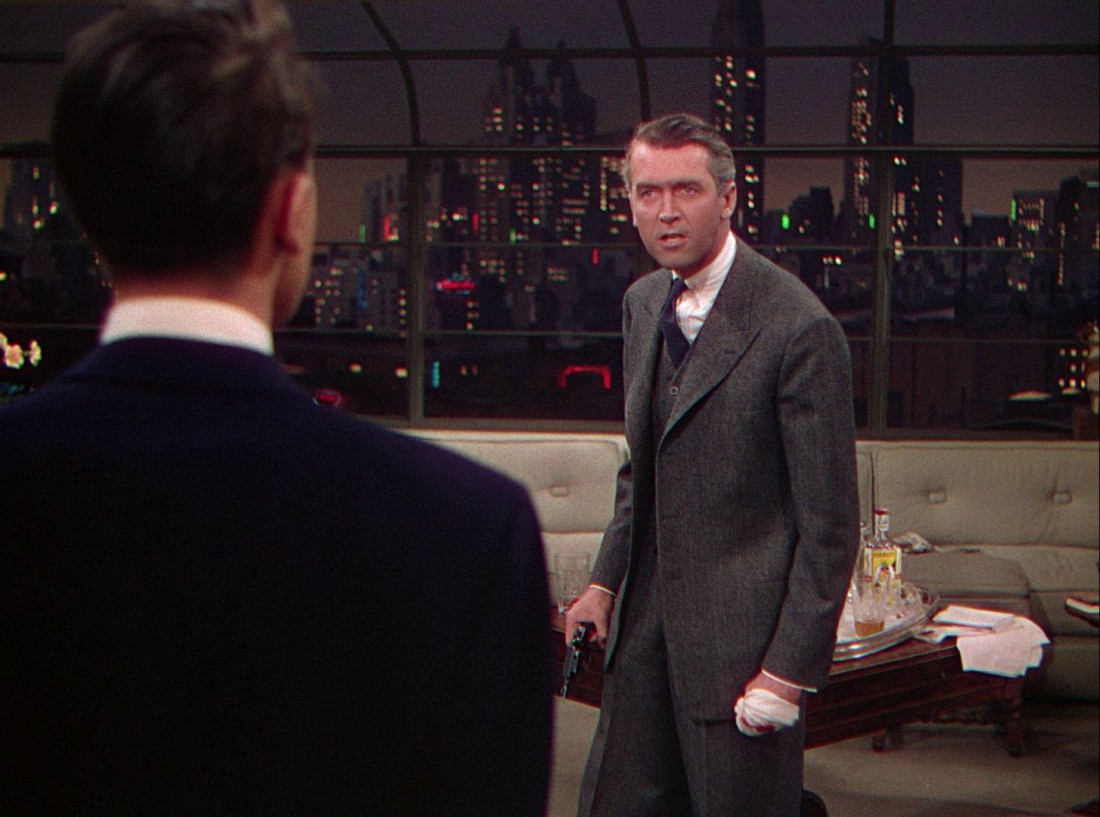
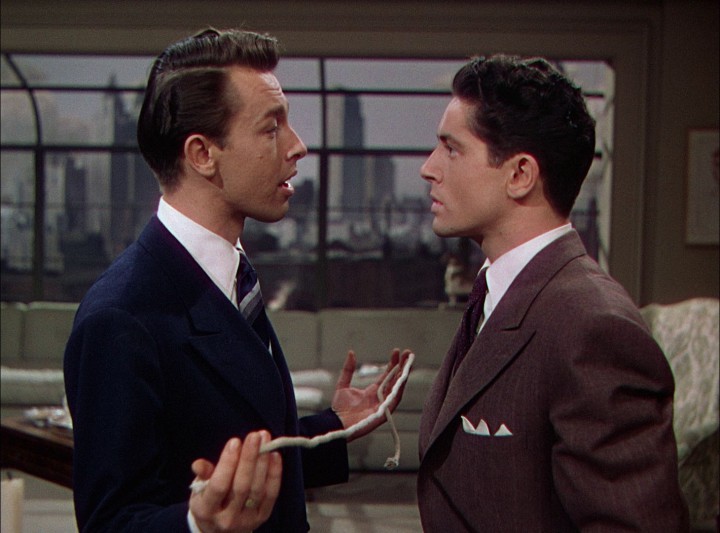

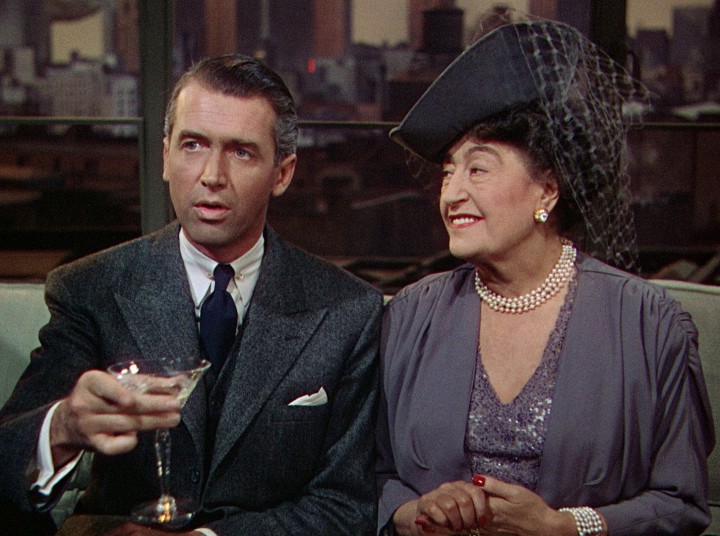
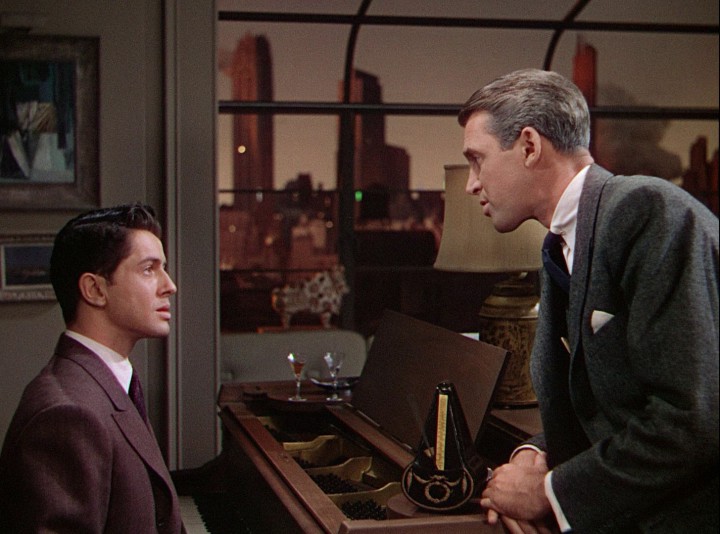
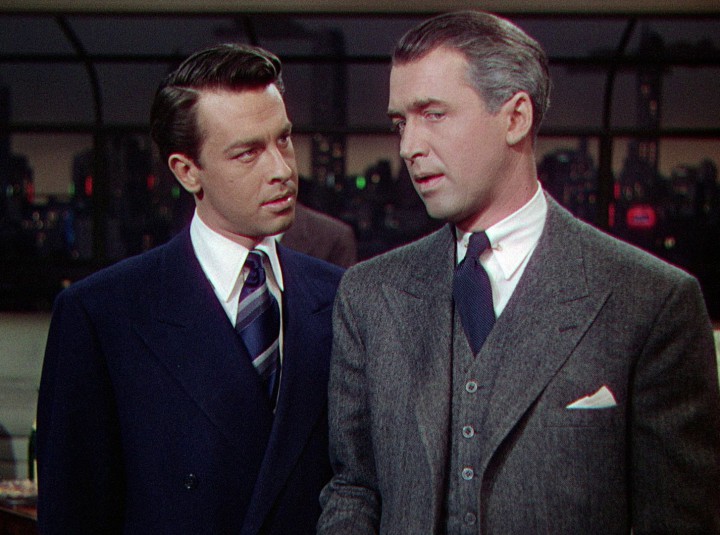

One of the greatest strengths of this film is that Hitch knew an audience’s stamina for a “single take” picture would be less than a regular film and kept the running time down. 80 minutes is the perfect length for a movie like this.
Didn’t seem to be much of a strain on Birdman to be longer than 80 minutes.
(Yes, it’s the precursor to last year’s Birdman.)
Wait… you mean Silent House isn’t the gold-standard precursor to Birdman?
The line to slap him forms on the right…